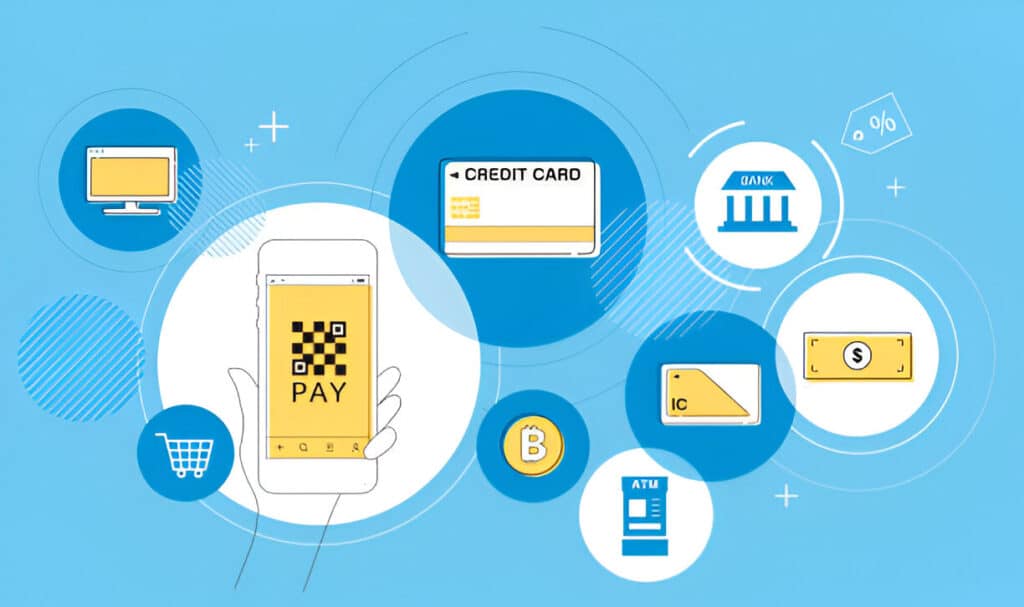Key Takeaways
- Payment platforms are crucial for digital commerce, serving as the backbone of online transactions.
- Understanding the different types of payment platforms helps businesses make informed decisions.
- Security is paramount in payment processing, and businesses must stay updated on best practices.
- Adhering to regulations is crucial for effectively managing a payment platform.
- Technological advancements continue to reshape the payment landscape.
Understanding Payment Platforms
In today’s fast-paced digital world, payment platforms have become vital in business operations, serving as the core foundation of any online transaction. From e-commerce giants to small local retailers, these platforms enable seamless and secure exchanges of funds between customers and businesses worldwide. Whether your business is just starting its digital journey or already established, a robust payment platform is essential to supporting your financial transactions and customer interactions. The landscape of payment platforms is vast and varied. Businesses must carefully consider transaction costs, ease of integration, and user experience when selecting a platform. While some may require international payment support, others prioritize mobile payment capabilities or rely on advanced analytics for insights into consumer behavior.
Types of Payment Platforms
Payment platforms can be classified into several types, each serving different needs and offering various functionalities. Traditional credit card processors, such as Visa and Mastercard, are widely accepted and trusted, providing a reliable and standardized method for handling transactions safely. In contrast, digital wallets like PayPal, Apple Pay, and Google Pay are praised for their convenience, allowing quick transactions with minimal user input. Additionally, mobile payment solutions are becoming increasingly popular. These platforms cater to customers who prefer using their smartphones for purchases. As mobile devices become essential for daily activities, mobile payment platforms offer a modern approach to transaction processing, highlighting their importance in today’s economy.
The Role of Security in Payment Processing
Financial transactions need high security since payment platforms are targets for cybercriminals. Robust security measures and cryptography are essential for protecting sensitive data and ensuring confidentiality. Businesses relying on these systems should explore advancements in encryption and security protocols, as evidenced by studies on cybersecurity in payment processing, to remain at the forefront of security innovations. Multi-factor authentication (MFA) provides an additional layer of security, ensuring that unauthorized access is blocked even if login credentials are compromised. Artificial intelligence (AI) and machine learning (ML) are increasingly used in fraud detection systems to identify real-time suspicious activities. By adopting these advanced security measures, businesses can enhance their payment systems and reduce the risk of cyberattacks.
Best Practices for Secure Transactions
- Encryption remains a bedrock of security, transforming personal and financial data into impenetrable code that only authorized parties can decipher.
- Regular software updates are indispensable to safeguarding systems, as they address vulnerabilities and reduce the risk of unauthorized intrusions.
- Multi-factor authentication (MFA) enhances security by requiring users to verify their identity through multiple checks, thus adding a layer of protection.
Compliance and Regulations
Selecting the appropriate technology is only one aspect of navigating the payment platform environment. It calls for a deep comprehension of legal standards. Essential laws that outline how sensitive data should be handled and safeguarded include the General Data Protection Regulation (GDPR) and the Payment Card Industry Data Security Standard (PCI DSS). Adherence to these rules is necessary to prevent penalties and preserve client confidence. Following data privacy regulations has grown more crucial in a time when privacy issues and data breaches are regularly in the headlines. Given these laws’ substantial influence on their business operations, payment platforms need to create strategic data management and protection methods. Businesses must keep up with changing privacy laws to protect customer data and maintain their standing in the marketplace.
Technological Innovations in Payment Platforms
The payment platform landscape is rapidly evolving due to technological advancements that challenge traditional methods and enhance efficiency. Innovations like blockchain and artificial intelligence (AI) transform payment systems by providing unprecedented transparency, security, and personalization. Blockchain, associated with cryptocurrencies, offers decentralized verification that improves transactional integrity and reduces fraud. AI enables platforms to analyze transaction patterns for predictive analytics and customized user experiences. Businesses must adapt to this dynamic financial environment to thrive. By leveraging these technologies, companies can stay at the forefront of payment solutions, enhance operational efficiency, and meet consumer expectations.
Conclusion: The Future of Payment Platforms
As the digital economy progresses, payment platforms will continue to be at the heart of an interlinked world of commerce. Businesses that invest in secure, compliant, and technologically advanced platforms will protect their interests and position themselves as leaders in a competitive market. By keeping trends in view and adapting to changes in technology and regulation, businesses will survive and thrive, setting a benchmark for success in the dynamic world of digital transactions.


